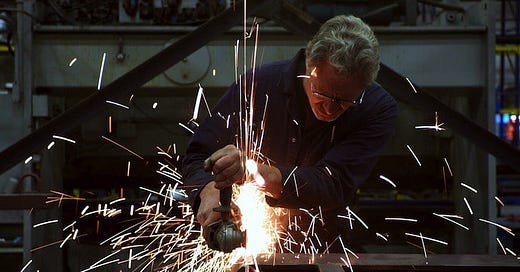Could ‘American Made Movie’ Change This Country? Directors Vincent Vittorio and Nathaniel Thomas McGill Believe So

With a title like American Made Movie, you might expect the new documentary from Vincent Vittorio and Nathaniel Thomas McGill to be a real flag-waving piece of patriotic propaganda. It’s not. While there is a goal or at least hope to change the country’s economy, it’s hardly a heavy handed issue film. It is a celebration of American manufacturing and bo…
Keep reading with a 7-day free trial
Subscribe to Nonfics to keep reading this post and get 7 days of free access to the full post archives.



